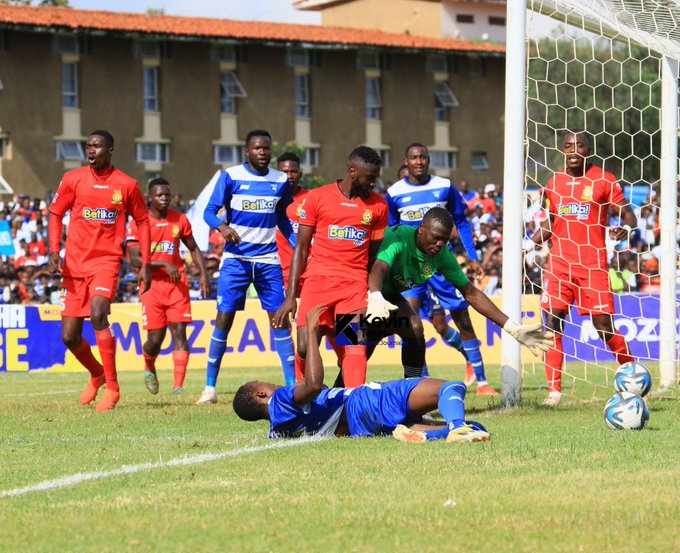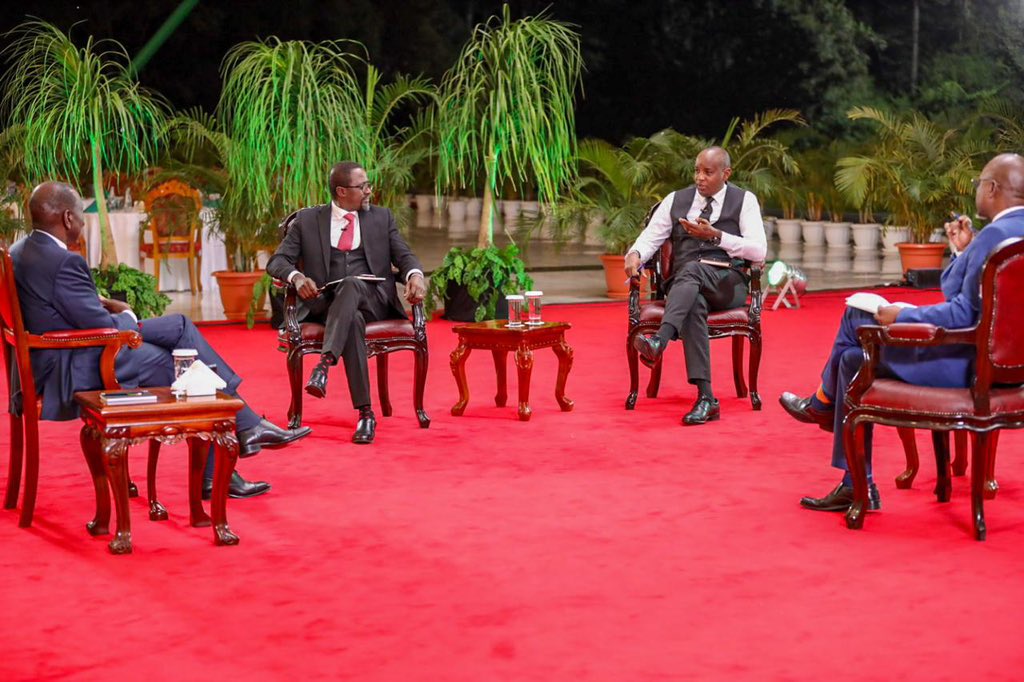
Crowd Chaos at AFC Leopards vs. Kenya Police FKF Cup Semifinal
The highly anticipated FKF Cup semifinal clash between AFC Leopards and Kenya Police FC was brought to a premature end due to unruly crowd behavior. The match, which was played at the Police grounds in Nairobi, was called off in the 60th minute after assistant referee Dennis Odhiambo was allegedly assaulted by a section of the rowdy spectators.
Incident Overview
According to reports, the match was poised at 1-0 in favor of Kenya Police when the assistant referee was attacked, leading the match officials to suspend the game. The crowd disturbance is said to have started when the assistant referee made a decision that angered some of the AFC Leopards supporters, who then proceeded to assault him. This triggered a chaotic scene, with fans rushing onto the pitch and confrontations between supporters of the two teams.
Factors Contributing to the Crowd Trouble
Several factors may have contributed to the unruly crowd behavior that led to the suspension of the match:
Venue Characteristics
- Performance Proximity: The Police grounds, where the match was played, had a relatively close proximity between the spectators and the players, which can increase the likelihood of physical altercations between the two groups.
- Seating Arrangements: The match was played in a venue with general admission seating, which has been linked to higher levels of spectator violence compared to assigned seating arrangements.
- Place Reputation: If a venue has a history of routine violence, it may attract people looking to cause trouble or encourage violent behavior among average spectators.
Event Characteristics
- Crowd Demographics: Sporting events that attract a predominantly male audience, particularly younger males, are more likely to generate violence than events that draw demographically mixed crowds.
- Event Significance: Important matches, such as cup semifinals, can provoke aggression among spectators, especially when the teams have a history of rivalry.
- Alcohol Availability: The availability of alcohol at the event can impair the judgment of people who are predisposed to violent behavior, leading to an increased likelihood of aggressive incidents.
Staff Characteristics
- Training and Experience: Inadequately trained or inexperienced staff may not be able to identify potential threats and respond appropriately, which can lead to the escalation of violent situations.
- Presence: An insufficient number of security personnel or a perceived overpolicing of the event can contribute to increased spectator aggression.
- Communication: Breakdowns in communication between event staff and poor coordination of emergency response can create a chaotic atmosphere, further exacerbating the situation.5
Consequences and Implications
The suspension of the match due to the crowd trouble has several significant consequences and implications:
Immediate Impacts
- Unfinished Match: The match was called off in the 60th minute, with Kenya Police leading 1-0.This means that the result of the semifinal was left unresolved, with the two teams potentially having to replay the match at a later date.
- Spectator and Staff Safety: The violent behavior of the spectators posed a serious threat to the safety of the players, match officials, and other personnel present at the venue.
- Damage to Venue: The crowd disturbance may have resulted in damage to the Police grounds, further complicating the aftermath of the incident.
Long-term Impacts
- Impact on Team Preparations: The interruption of the match and the potential need to replay it could disrupt the teams’ preparations for upcoming fixtures, both in the FKF Cup and their respective league campaigns.
- Tarnished Reputation: The incident has the potential to tarnish the reputation of Kenyan football, as well as the specific teams involved, and may negatively impact the public’s perception of the sport’s ability to maintain order and safety at events.
- Disciplinary Action: The governing body, Football Kenya Federation (FKF), is likely to investigate the incident and may take disciplinary action against the parties involved, such as sanctions, fines, or bans.
Broader Implications for Kenyan Football
The crowd trouble at the AFC Leopards vs. Kenya Police FKF Cup semifinal is not an isolated incident, but rather part of a broader challenge faced by Kenyan football in maintaining order and safety at matches. Similar incidents of spectator violence have occurred at other high-profile football events in the country, highlighting the need for comprehensive strategies to address this persistent problem.
Addressing Spectator Violence
To mitigate the risk of future incidents and improve the overall match-day experience for fans, Kenyan football authorities and stadium operators should consider implementing a range of measures:
- Venue Design and Management: Carefully design stadium layouts to increase physical distance between players and spectators, and ensure appropriate seating arrangements to maintain order.
- Crowd Control and Security: Employ a sufficient number of well-trained security personnel, both uniformed and plain-clothed, to monitor the crowd and respond effectively to any disturbances.
- Alcohol Management: Carefully consider the availability and distribution of alcohol at matches, as intoxication is a major contributing factor to spectator violence.
- Crowd Engagement and Communication: Encourage positive interactions between staff and spectators, and ensure clear communication of rules, regulations, and emergency procedures.
- Collaboration and Intelligence-Sharing: Foster cooperation between football authorities, law enforcement, and stadium operators to share intelligence and coordinate effective responses to potential threats.
Broader Systemic Reforms
In addition to the specific measures targeting spectator violence, Kenyan football may also need to address broader systemic issues that contribute to the prevalence of such incidents:
- Governance and Accountability: Strengthen the governance structures and accountability mechanisms within Kenyan football to ensure that the sport is managed in a transparent and responsible manner.
- Fan Engagement and Community Outreach: Develop comprehensive strategies to engage with football fans, understand their concerns and grievances, and foster a sense of ownership and responsibility within the fan base.
- Youth Development and Education: Invest in grassroots football programs and educational initiatives that instill positive values, sportsmanship, and respect for the game among young fans and aspiring players.









